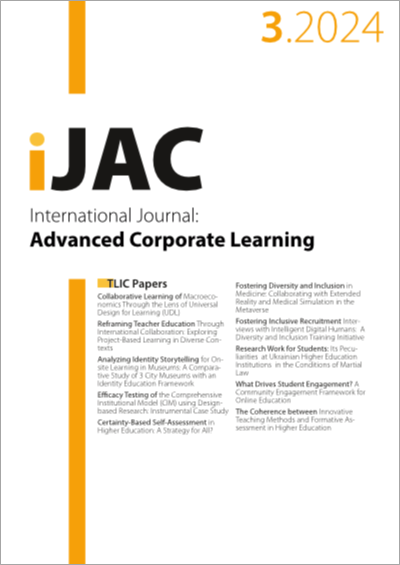Efficacy Testing of the Comprehensive Institutional Model (CIM) using Design-based Research: Instrumental Case Study
DOI:
https://doi.org/10.3991/ijac.v17i3.44899Keywords:
Comprehensive Institutional Model (CIM), design-based research (DBR), blended educational models, hybrid educational models, Hy-flex models, COVID-19, higher education institutions (HEIs), evidence-based testingAbstract
COVID-19 was a “black swan” event that forever altered higher education’s adult teaching and learning landscape by requiring a pathway shift in institutional resources to meet student and faculty support needs for academic success and institutional sustainability. Over the last two years, thousands of scholarly articles have been published about the challenges that higher education institutions (HEIs) faced during COVID-19 and their lasting impact on student learning, faculty engagement, and institutional operations in the post-COVID environment. Many researchers offer strategies and guidance to help address the challenges; however, research is limited to testing these strategies and proposed models designed to mitigate the challenges and manage such a crisis in the future. The proposed study will help close this gap by assessing the efficacy of the Comprehensive Institutional Model (CIM), developed based on the findings of Perceptions of Online Strategies and Digital Readiness in the COVID-19 Environment: An Instrumental Case Study by McCray et al. [19]. The CIM aims to provide HEIs with a model to support Hy-flex learning environments to ensure readiness for new emergencies and the aftermath of a “new normal” in higher education. The model organizes how aligning administrators, faculty, and graduate students impacts effective Hy-flex teaching and learning environments. Design-Based Research (DBR) will be used to systematically collect and analyze evidence-based testing results of the CIM across three iterations.
Downloads
Published
How to Cite
Issue
Section
License
Copyright (c) 2024 Pamela D. McCray, Norman St. Clair

This work is licensed under a Creative Commons Attribution 4.0 International License.



